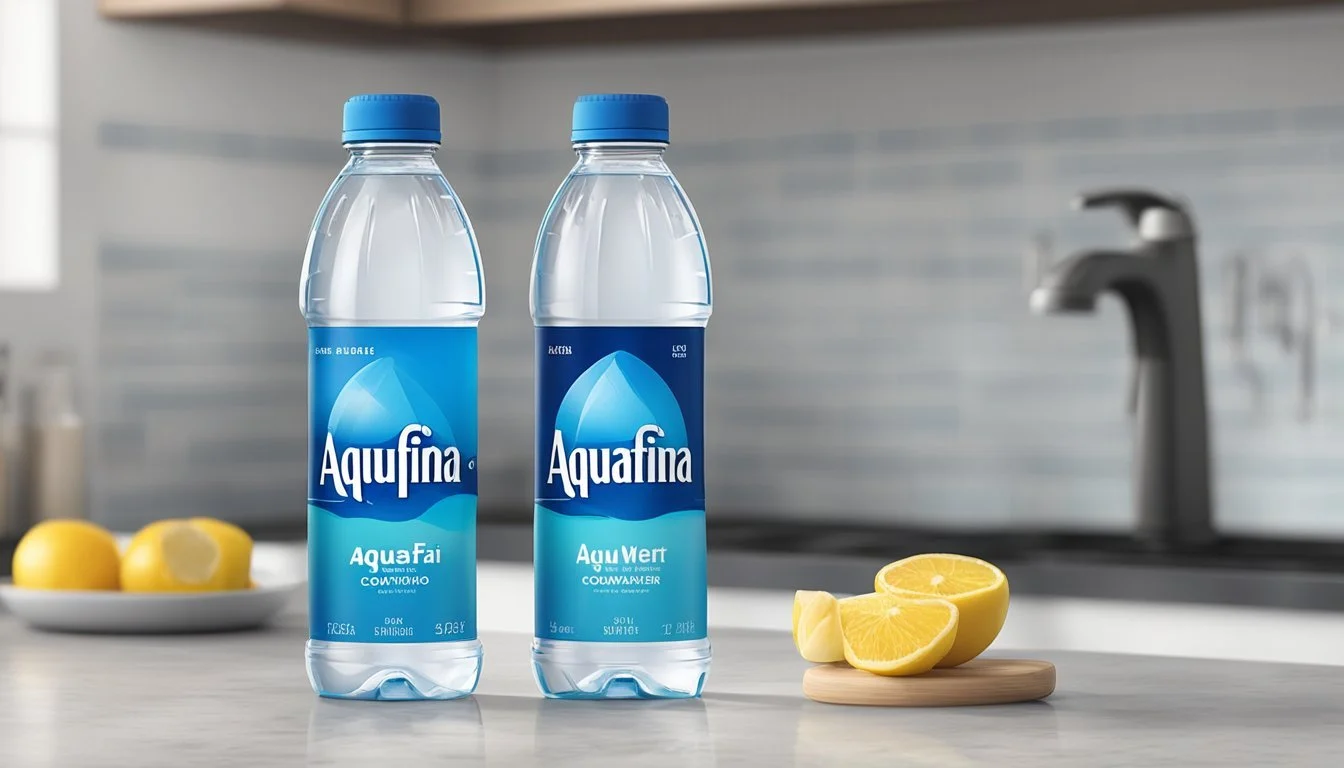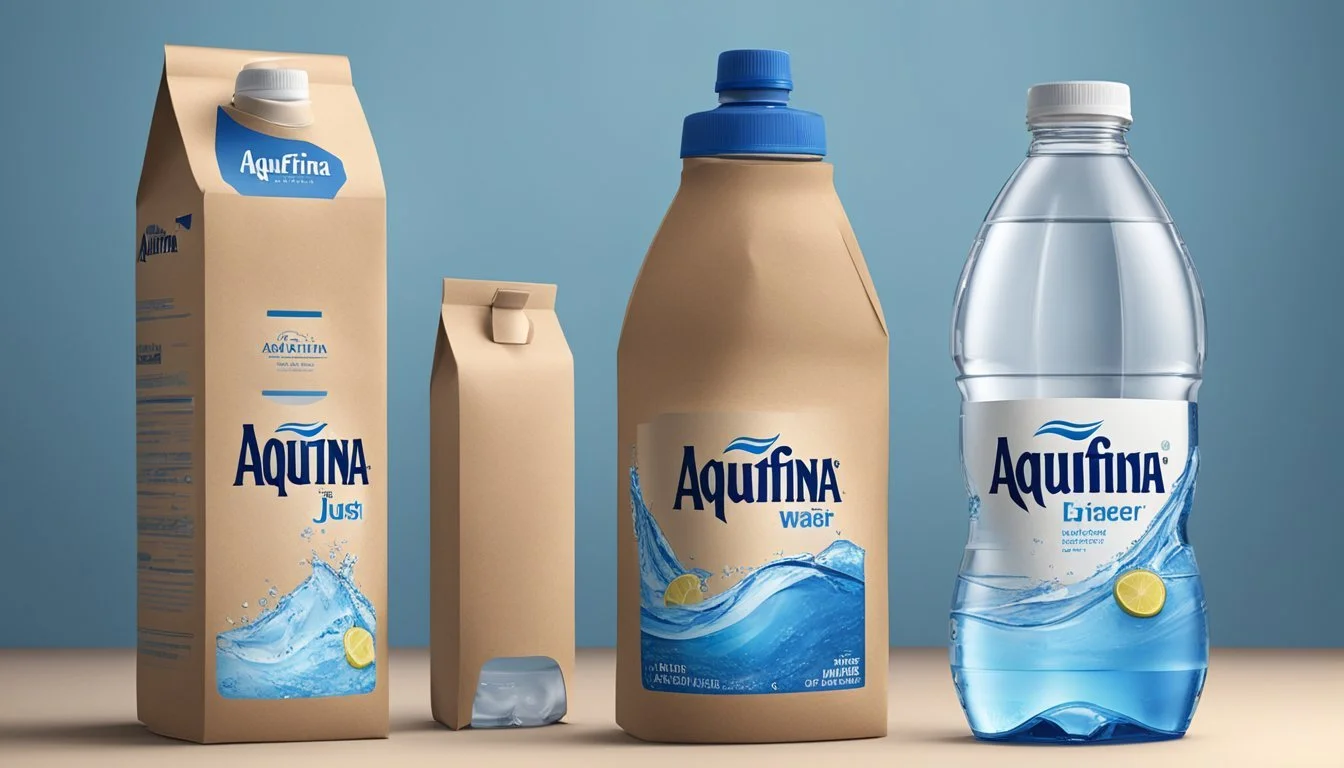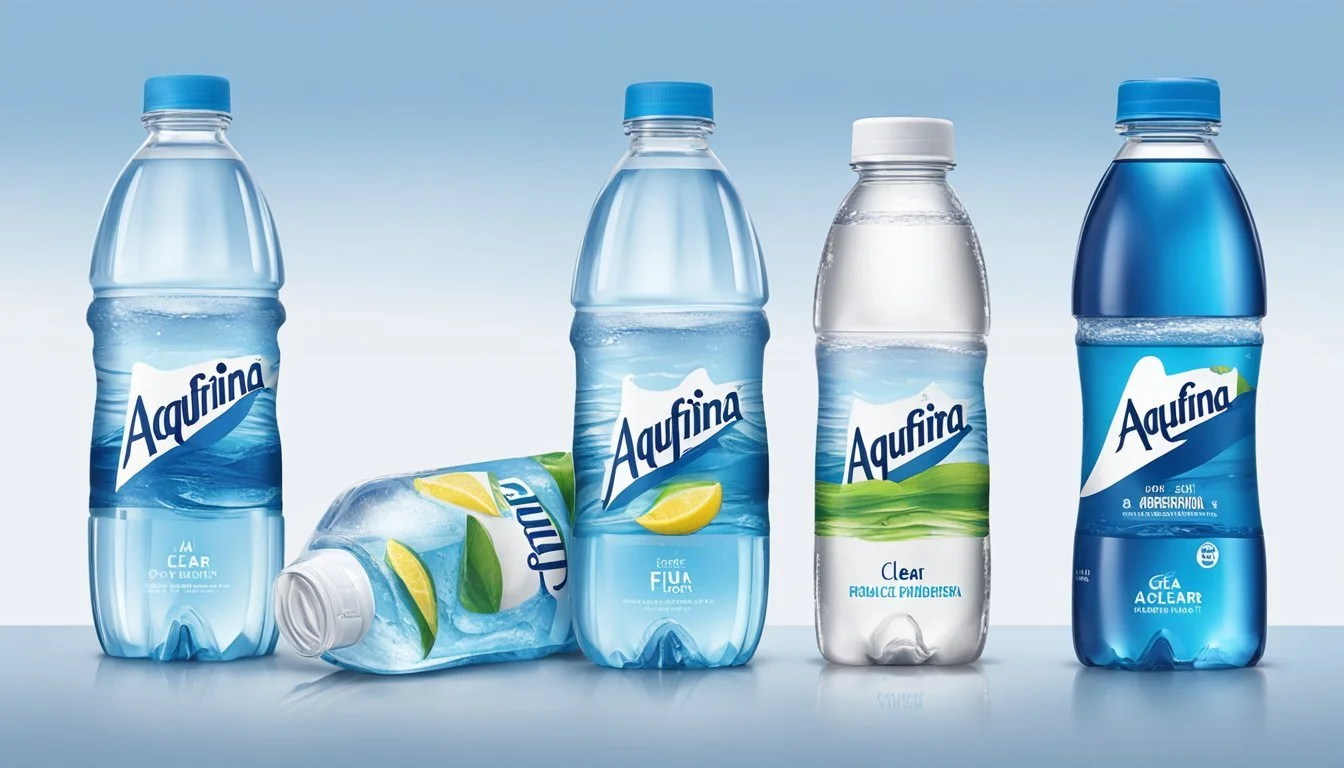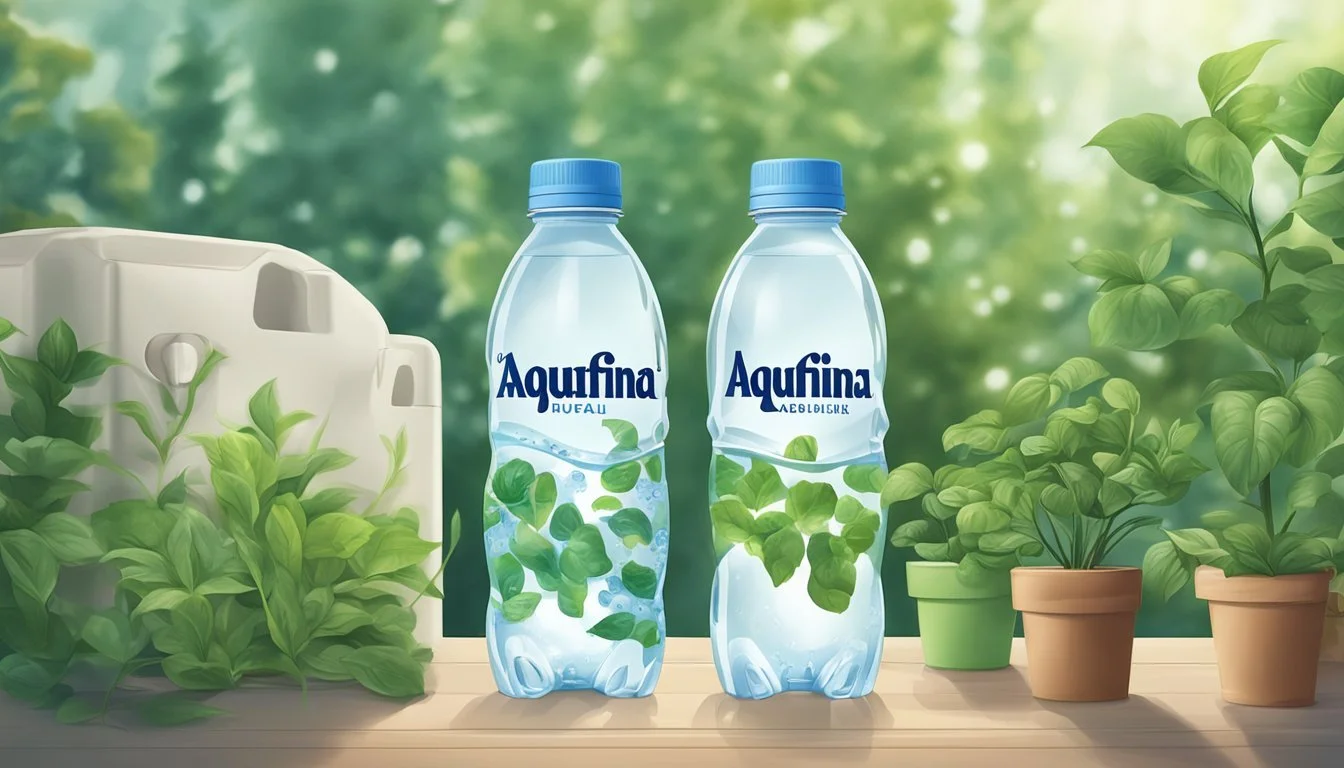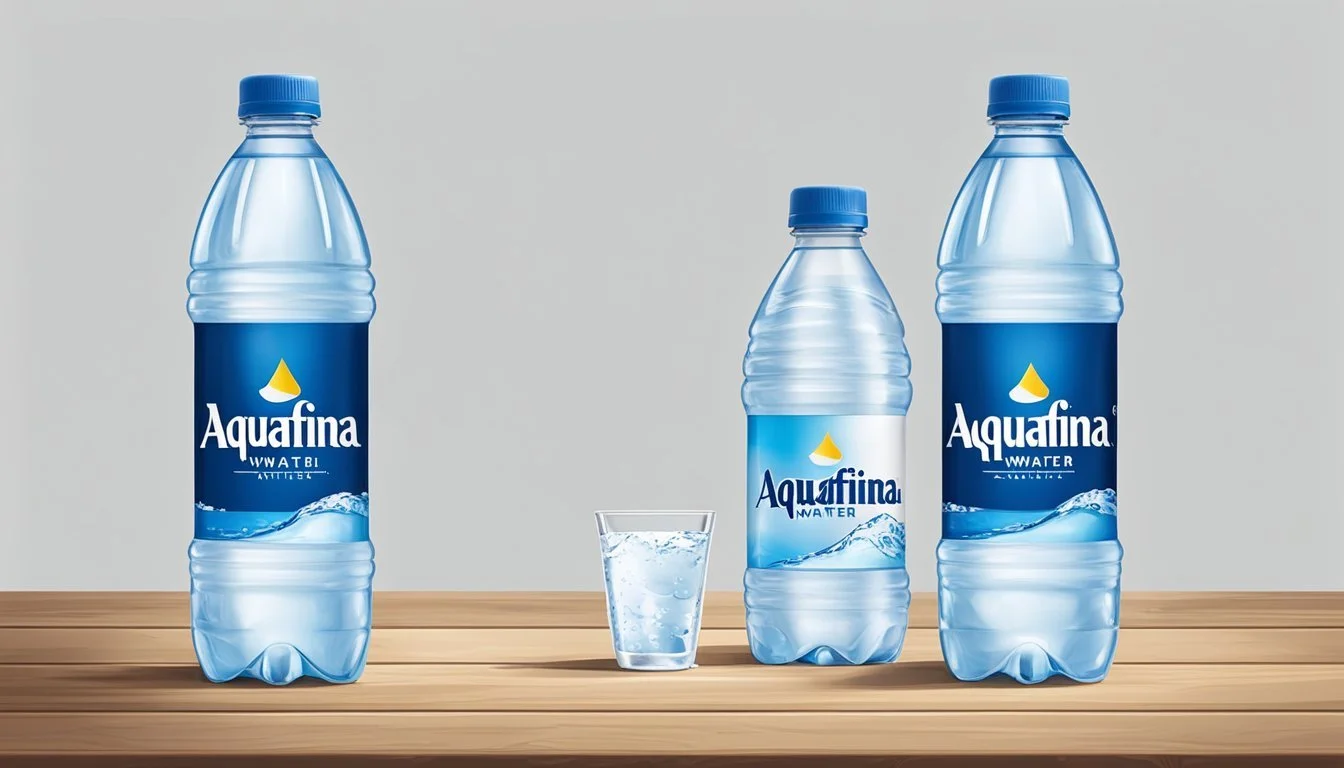Aquafina vs. Just Water
A Comparative Analysis of Bottled Water Quality
In the world of bottled water, two brands that often capture consumer interest are Aquafina and Just Water. While Aquafina is known for its purification process, sporting a seven-step method that includes reverse osmosis and ultraviolet light treatment, Just Water prides itself on its eco-friendly packaging and natural sourcing. These differing priorities reflect the growing complexity of consumer demands in the bottled water market, where factors such as taste, purity, sustainability, and brand ethos play significant roles in purchasing decisions.
Aquafina, a brand owned by PepsiCo, boasts widespread availability and a purification process designed to deliver consistency in taste and quality. Its water is sourced from public water supplies, a fact that is meticulously treated to remove impurities. In contrast, Just Water brings forward an approach focused on environmental impact, offering water in a plant-based carton made from 82% renewable resources. The brand emphasizes not just the quality of the water but also its commitment to reducing plastic waste and its carbon footprint.
Consumers are increasingly making choices based not only on the product itself but on what the brand represents in the broader context of environmental stewardship and health. The comparison between Aquafina and Just Water goes beyond the product; it encapsulates a discussion about the values driving modern consumption patterns. Each brand aims to cater to different aspects of this consumer consciousness, inviting individuals to consider what factors are most important to them in their choice of bottled water.
Understanding Bottled Water
Before diving into the specifics between Aquafina and Just Water, it's crucial to understand the broader context of bottled water—its types, the regulations ensuring its safety, and the environmental considerations it entails.
Types of Bottled Water
Bottled water can be classified based on its origin and the treatment it undergoes. Here are the primary categories:
Purified Water: This type has been processed to remove chemicals and contaminants. Methods such as reverse osmosis or distillation are commonly used in its purification process.
Spring Water: Sourced from natural springs, this water must be collected at the spring or through a borehole tapping the underground formation feeding the spring.
Distilled Water: Water that has been boiled into vapor and condensed back into liquid in a separate container, removing most impurities and minerals.
Mineral Water: Contains natural minerals and trace electrolytes and must be bottled directly at the source.
Regulation and Safety Standards
Bottled water is subject to stringent regulation and safety standards to ensure hygiene and consumer health:
In the United States, the Food and Drug Administration (FDA) oversees bottled water standards, which must comply with limits on certain contaminants and filtration requirements.
Purification processes, including filtration and reverse osmosis, not only improve safety but also taste and quality.
Environmental Impact
The production and disposal of bottled water have substantial environmental impact:
The water brands contribute to a significant amount of plastic waste, although some brands are moving towards more sustainable packaging.
Transport of bottled water over long distances consumes energy and contributes to greenhouse gas emissions.
By understanding these aspects of bottled water, consumers can make more informed choices about their drinking water preferences, weighing considerations like taste, source, safety, and environmental footprint.
Aquafina: Brand Overview
Aquafina is a bottled water brand recognized for its purification process and global distribution. It is produced by PepsiCo, offering a taste profile that is often characterized as pure and clean.
Source and Production
Aquafina originates from public water sources and undergoes a rigorous purification process. This includes reverse osmosis, ultraviolet, and ozone sterilization, a methodology branded by PepsiCo as Hydro-7™. The seven-step process meticulously filters out substances to deliver water that meets Aquafina's purity standards.
Taste Profile
The taste of Aquafina is often described as neutral and crisp, characteristics largely attributed to its purified nature. Water taste can be subjective, but the extensive filtration system is designed to remove chlorides, salts, and other substances that may affect the taste, ensuring a consistent flavor.
Market Presence
Aquafina boasts a significant market presence, with distribution across numerous countries which makes it one of PepsiCo's global flagship products. The brand offers various water products, including unflavored and flavored options, catering to diverse consumer preferences.
Aquafina's recognizability can be partially credited to PepsiCo's extensive distribution network, positioning it as a familiar choice for consumers worldwide.
Just Water: Brand Overview
Just Water prides itself on delivering a product that blends sustainability with convenience. They offer 100% spring water in an eco-friendly package, aiming to cater to environmentally conscious consumers.
Source and Production
Just Water sources its water from springs in the United States, ensuring that the supply is 100% spring water. The company emphasizes sustainability, utilizing a carbon filtering process to maintain the water's purity while minimizing their environmental footprint. Additionally, they package their water in a paper-based bottle which is designed to reduce plastic waste.
Taste Profile
The taste of Just Water is often described as clean and refreshing, which is a testament to the natural origin of the spring water and the carbon filtering process it undergoes. While the brand also offers flavored water options, their unflavored variety maintains a gentle taste that is well-received for its simplicity and purity.
Market Presence
Just Water has established itself firmly in the market with its distinctive blue, paper-based bottle that stands out on shelves for its eco-friendliness. The brand's commitment to environmental sustainability resonates with customers, offering them the convenience of bottled water without the associated guilt of environmental harm. As a result, Just Water has not only a strong presence in retail locations but also a considerable following among those who prioritize ecological concerns in their purchasing decisions.
Taste Comparison
The taste of bottled water can be significantly influenced by its source and filtration process. Consumers may experience varying degrees of crispness, purity, and mineral content when sampling different brands. Let's explore the taste profiles of Aquafina and Just Water.
Aquafina Taste
Aquafina utilizes a rigorous purification process that includes reverse osmosis, ozone sterilization, and ultraviolet radiation, aiming for a taste that's as pure as possible. They claim this process removes most minerals and contaminants, resulting in a clean and crisp flavor. Aquafina's taste is often described as neutral and straightforward, lacking any distinct mineral flavor, which can be preferable to those seeking a "pure" water taste.
Just Water Taste
Just Water prides itself on an eco-friendly approach using spring water sourced from Upstate New York, which naturally contains a range of minerals. These minerals contribute to the water's flavor, potentially adding a slight earthiness to its profile. Just Water may present a different experience in blind taste tests found on resources like YouTube, as the subtle flavors derived from its mineral content and pH balance are compared to the more sanitized taste of purified waters like Aquafina.
Health and Hydration
When examining the health and hydration benefits of Aquafina and Just Water, it is vital to consider the mineral content and pH levels, as well as how effectively they hydrate the body.
Beneficial Minerals and Ph Levels
Aquafina, being purified water, goes through a rigorous hydro-7 purification process that includes reverse osmosis, leaving it with a pH level typically close to neutral, which is often desirable for maintaining the body's natural balance. However, this process also removes most minerals and electrolytes that could be beneficial for health.
Just Water, on the other hand, sources its water from a natural spring and touts its filtration through volcanic rock, which adds minerals naturally. This not only improves the taste but potentially contributes to better health. Just Water's pH level is also typically higher due to these naturally occurring minerals, which some consumers seek out for its supposed health benefits.
Aquafina:
Minerals: Low to none
pH level: Neutral (around 7)
Just Water:
Minerals: Naturally occurring, includes calcium, magnesium, potassium
pH level: Alkaline (above 7)
Hydration Efficiency
Both Aquafina and Just Water are effective in providing hydration, which is the primary purpose of bottled water. The presence of electrolytes in water can enhance hydration by helping the body absorb water more efficiently. While Aquafina is generally devoid of these electrolytes, Just Water's naturally occurring mineral content means it contains some electrolytes, which might aid in hydration beyond simply replenishing fluids.
Therefore, while the difference in hydration efficiency between the two brands could be negligible for the average consumer, for those who are very active or seeking additional electrolytes, Just Water might have a slight edge due to its mineral content. However, one should note that the hydration level for any individual can also vary based on personal needs and the level of activity.
Aquafina:
Hydration: Effective hydration; no additional electrolytes
Just Water:
Hydration: Effective hydration; contains natural electrolytes
Environmental Considerations
Choosing between Aquafina and Just Water not only comes down to taste and quality, but also how each brand impacts the environment. This section sheds light on the sustainability efforts and recycling practices of both brands.
Sustainability Efforts
Aquafina, owned by PepsiCo, has recognized the environmental impact of bottled water and is working towards improving sustainable practices. However, their efforts largely center on reducing packaging materials and managing water resources efficiently in the bottling process. The company's water stewardship program aims to replenish every drop used in its beverages in areas of high water risk.
On the other hand, Just Water takes a more holistic approach to sustainability. They heavily advertise their use of a plant-based carton designed to reduce carbon footprint and their commitment to global water initiatives. Just Water’s bottle is made of 82% renewable resources, combining paper with a plant-based plastic cap. The box-shaped packaging is designed to reduce shipping volume and associated emissions.
Packaging and Recycling
Both companies approach packaging and recycling differently:
Aquafina utilizes PET bottles, which are highly recyclable. It aims to design more resource-efficient packaging. However, recycling rates remain a global challenge, and not all Aquafina bottles are guaranteed to be recycled.
Just Water touts that its packaging is made from materials that are mostly plant-derived and, therefore, have a lower lifecycle environmental impact. Their cartons are not only recyclable but also refillable, which further reduces the need for single-use bottles.
Boxed water options, like Just Water, typically have a smaller carbon footprint compared to traditional plastic bottles due to the reduced energy required in production and their higher potential for recycling. However, the actual environmental benefit can vary depending on the efficiency of the local recycling systems.
Cost and Accessibility
When comparing Aquafina and Just Water, consumers often consider both the price point and retail availability as decisive factors. These brands vary in their market presence and accessibility, affecting one's choice depending on convenience and the ability to quench thirst.
Price Comparison
Aquafina: Generally positioned as a budget-friendly option, it typically offers competitive pricing. Depending on the retail outlet and packaging options, prices can vary, but it is often found at a lower price point compared to premium brands.
Just Water: Marketed as a premium product with eco-friendly packaging, Just Water's price can be higher than that of Aquafina. The brand emphasizes sustainable practices, which may contribute to its higher price.
Prices may fluctuate based on location and retailer, but consistently, Just Water prices reflect its premium branding compared to Aquafina's more economical positioning.
Retail Availability
Aquafina: Possesses a significant global distribution network due to its affiliation with PepsiCo, making it highly accessible in stores worldwide. Its convenience is a strong selling point, with availability in numerous supermarkets, convenience stores, and vending machines.
Just Water: While also available internationally, Just Water's market presence is less pervasive than Aquafina. Focused more on specialized and eco-conscious retailers, it may not be as readily found in the average convenience store but is accessible in places aligning with its environmental ethos.
Consumer Preferences
In the arena of bottled water, consumer preferences hinge on factors such as taste, purity, brand reputation, and marketing. Two contenders in this space, Aquafina and Just Water, attract their own loyal followings based on these criteria.
Brand Loyalty
Aquafina, a product of PepsiCo, has established itself with a pronounced presence in the market. Their purification process, which they claim includes reverse osmosis, attracts consumers who prioritize purity. Just Water, on the other hand, appeals to environmentally conscious consumers with their plant-based carton and spring water sourcing. Market research suggests that brand loyalty often aligns with a consumer's personal values such as environmental impact, leading to a strong preference for Just Water among eco-friendly consumers.
Brand Preferences:
Aquafina: Preferred by those prioritizing water purity and brand recognition.
Just Water: Chosen by consumers valuing environmental sustainability and innovative packaging.
Public Perception
Public perception can be significantly influenced by branding and marketing. Evian and Fiji, for example, have positioned themselves as premium brands and are perceived as such by many consumers. Dasani and Smartwater, like Aquafina, benefit from their association with major beverage companies, Coca-Cola, and boast vast distribution networks. Nestlé, despite being a large player, has faced public scrutiny due to controversies over water sourcing. In this context, Just Water's branding around sustainability has found a favorable reception, particularly among younger demographics who are more inclined to support brands with a perceived positive environmental and social impact.
Consumer Perceptions Influenced by Branding:
Evian/Fiji: Viewed as premium.
Dasani/Smartwater: Gain trust through affiliation with Coca-Cola.
Nestlé: Faces challenges due to ethical concerns.
Just Water: Favored for its eco-friendly image and ethical sourcing.
Expert Analysis and Recommendations
When comparing Aquafina and Just Water, one must consider industry expert insights and personal preference parameters to determine which bottled water to choose for optimal hydration and health benefits.
Industry Expert Insights
Aquafina, a PepsiCo product, is known for its purification process, which includes reverse osmosis and other filtration methods. However, Aquafina sources from public water systems, akin to tap water, which it then purifies. Experts in the industry often place Aquafina in the mid-tier range for bottled water. On the other hand, Just Water prides itself on its eco-friendly packaging and spring water with naturally occurring minerals. Although not as widely critiqued as Aquafina, Just Water appears to be recognized for its environmental stance more than its taste or mineral content.
Competitive analyses have various bottled water brands ranked from worst to best, with premium brands, such as Essentia and Voss, often occupying high ranks due to their taste, purity, and mineral content — factors that health-conscious consumers value. Essentia is notable for its ionization process, while Voss is acclaimed for its purity and luxury branding.
Brand Typical Ranking Purification/Source Notable Features Aquafina Mid-tier Public water source, purified Widely available Just Water Not widely ranked Spring source Eco-friendly packaging Essentia High-tier Ionized Optimal pH for hydration Voss High-tier Artisan Premium brand recognition
Choosing the Right Water for You
Selecting the right bottled water depends on individual priorities such as taste preferences, health recommendations, environmental concerns, and price. For those valuing purity and status, brands like Voss might be preferable. Health enthusiasts might lean towards Essentia for its alkaline qualities. Environmental advocates are likely to favor Just Water due to its commitment to sustainability.
In any case, consumers should contemplate the mineral content and the source of the water. Public water sources are highly regulated, but extra purification steps, like those used by Aquafina, can strip water of beneficial minerals. Conversely, natural spring waters such as Just Water can retain mineral content but are subject to different regulatory standards.
For those looking for a mix of environmental sustainability and healthful drinking water, it's recommended to read labels closely to understand exactly what you're purchasing. Each brand offers a different balance between purity, taste, and ecological impact.

